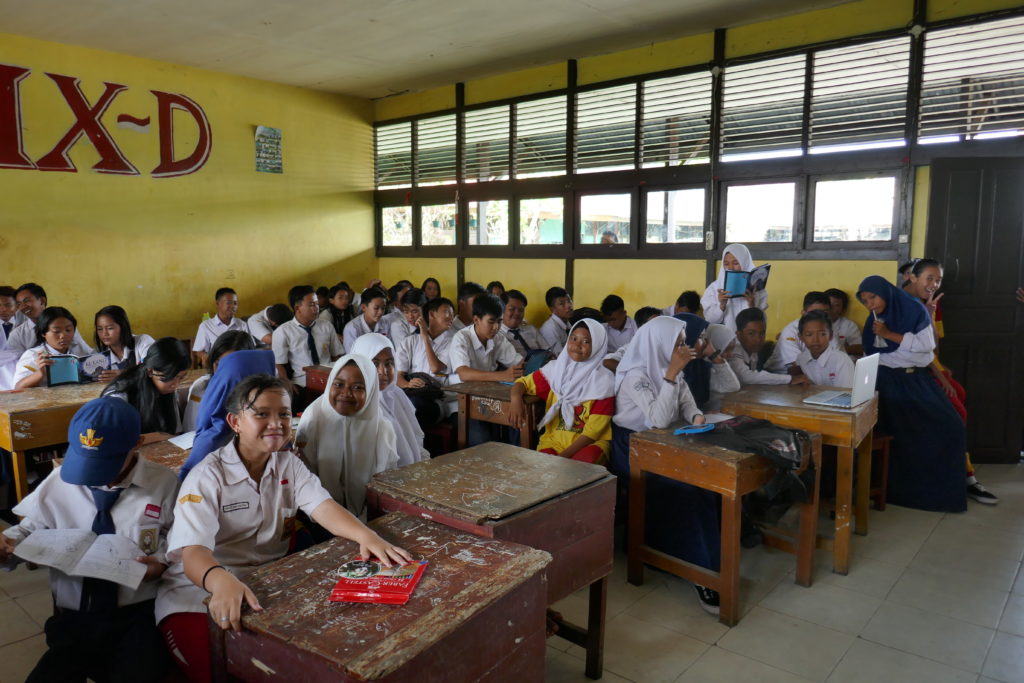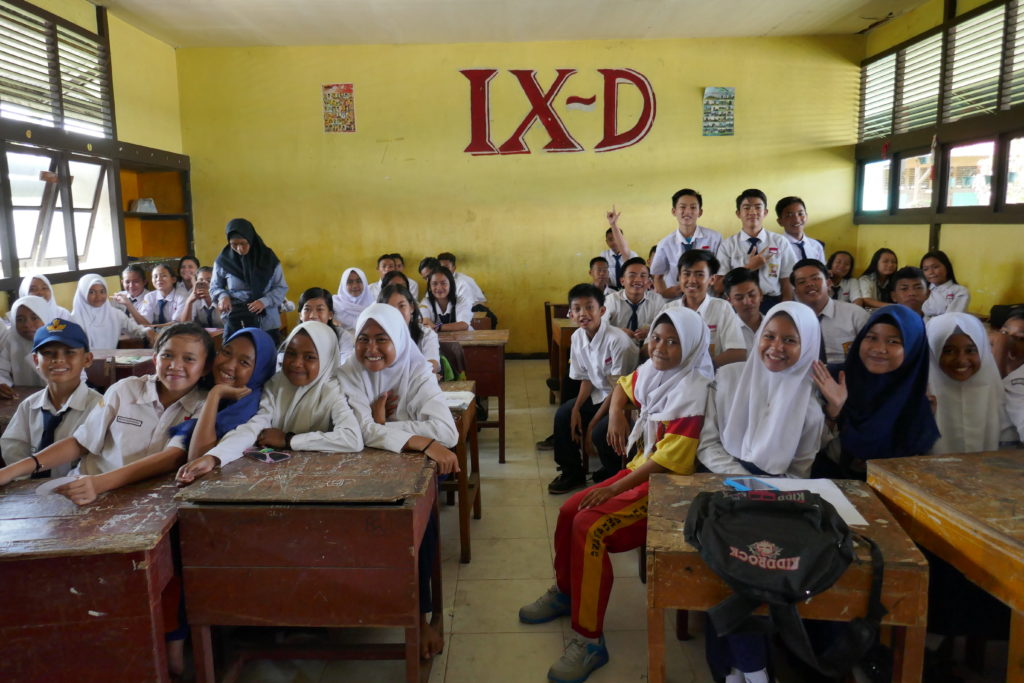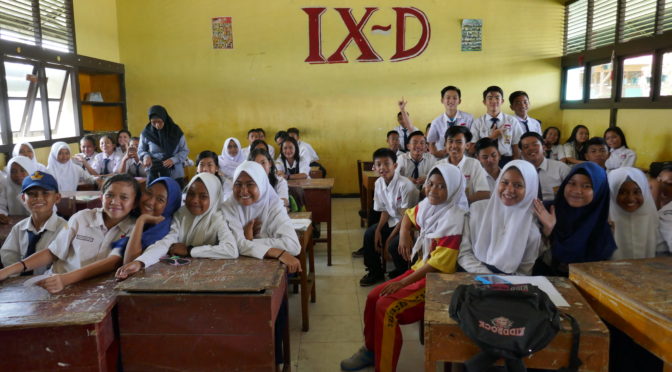If you have been following our recent blogs and facebook posts, you might know that LFP is starting an exciting new education project in which we bring our awesome Forest Protector curriculum (created by Director Dr. Anna Nekaris) to other parts of Indonesia. This curriculum focuses on teaching children the importance of local wildlife, particularly slow lorises, and why they should be protected. Each session starts with a “pre-test” in which we ask the kids what they already know about conservation and slow lorises. They each also draw a picture of what they think a slow loris looks like. We have been blown away by how many children actually have no idea what a slow loris is. Many of these locations are in heavily forested areas, so chances are that these children’s’ homes are located very close to or inside slow loris home ranges. It is hard to believe that these kids do not know about this unique primate living so close-by, but for me that has solidified the importance of what we are doing – providing these kids with knowledge about how amazing the environment all around them is, encouraging them to appreciate and protect what is left for the future.
We then read a book together, a story of a mother loris, Tereh (an actual loris that we monitor in our field site in Java), and her son, Bunga. The story follows them throughout the night as Tereh teaches Bunga how to find food. They stumble upon a house, inside of which is a human mother and her son. The mother tells the son to remember to eat his vegetables, just as Tereh had told Bunga how to find food for himself. This is meant to encourage the children reading the book to empathize with the slow loris characters and to recognize a connection between them and their own mothers. I think this message has really hit home with a many of the children. In the fun activities they complete as part of the session, I have noticed many mother-child themes.

Our most recent trip was to schools in Western Kalimantan, around the city of Pontianak. One class had nearly 100 students! It was very overwhelming, but the staff and students were absolutely thrilled to have us there. A group of kids even prepared a traditional dance just for us. It was wonderful to see how enthusiastic these kids, as well as the teachers, were to learn about slow lorises and conservation. In 2-3 months, we will return to each school to do a follow-up session, and to see how the children’s’ knowledge and attitudes have changed since the we were last there. It is extremely exciting that we can take these lessons to other parts of Indonesia, and spread conservation awareness to children with different lifestyles and living in varying environments. This is one of the many ways we hope to encourage people to respect and protect the amazing wildlife of Indonesia. ELLA BROWN


